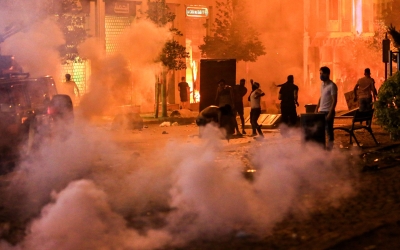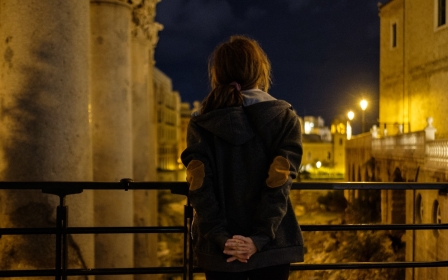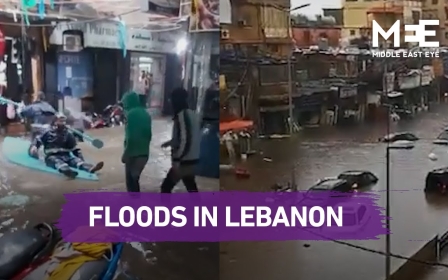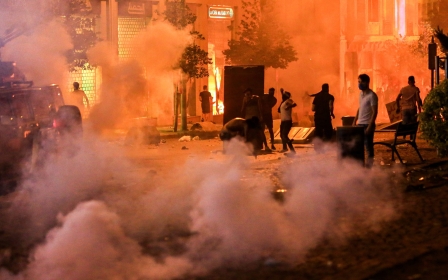Lebanese security forces crack down on protesters in Beirut
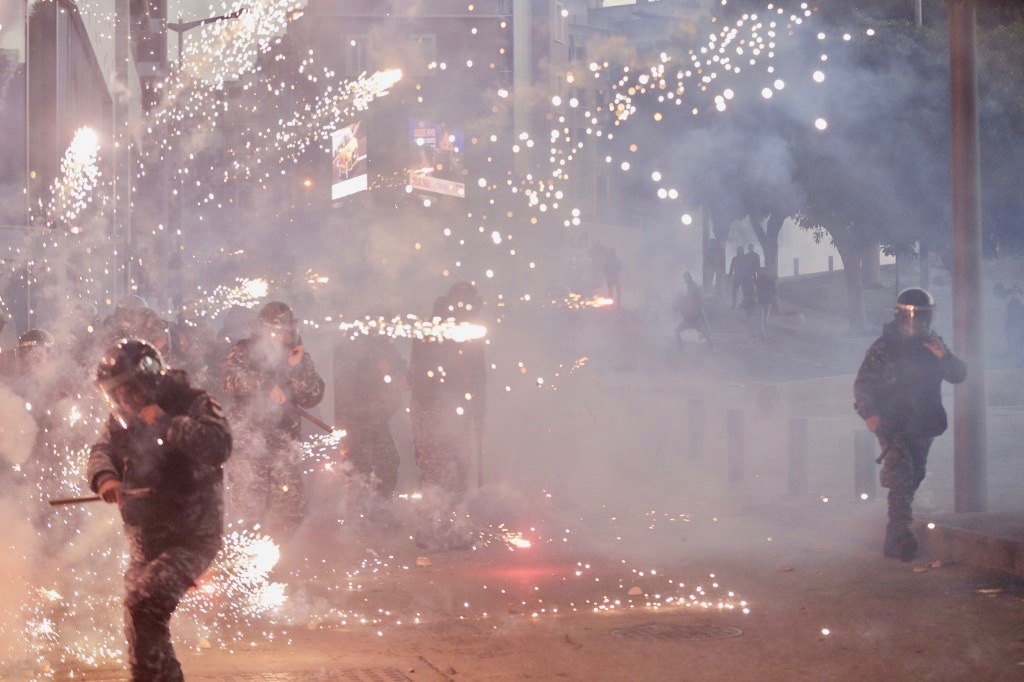
Lebanon's protest movement took a violent turn on Saturday night as security forces cracked down on demonstrators in central Beirut, firing tear gas and rubber bullets and wounding dozens.
With their country facing an economic catastrophe and inept, bickering leadership, Lebanese headed downtown, to an area largely blocked off from the public and populated by parliament and other governmental buildings.
New MEE newsletter: Jerusalem Dispatch
Sign up to get the latest insights and analysis on Israel-Palestine, alongside Turkey Unpacked and other MEE newsletters
Efforts to access the landmark Nejmeh Square, however, were unsuccessful, as attempts to remove the metal roadblocks were met by force from the security forces guarding the site.
From then, security forces played a game of cat and mouse with protesters, chasing them across central Beirut and into neighbouring areas such as the Charles Helou Highway that leads north out of the city.
Protesters were beaten and detained, according to media and social media reports. In turn, demonstrators pelted police with rocks.
State news agency NNA said the tear gas made several people faint. The Lebanese Civil Defense said it treated 54 people for injuries, taking more than half to hospital. The Internal Security Forces said at least 20 police were wounded.
Central Beirut has been one of the major rallying points for a country-wide protest movement that flared in mid-October in response to a number of new tax plans drawn up by Lebanon's corrupt political elite that would have hit the pockets of ordinary Lebanese citizens hard.
The large anti-government rallies, which grew into calls for a root-and-branch overhaul of the state, have been mostly peaceful.
Still, clashes have become more frequent in recent weeks, with supporters of the Hezbollah and Amal movements attacking protest camps in several cities in counter-demonstrations. Before Saturday evening's clashes, Amal and Hezbollah supporters attempted to target a protest encampment in downtown Beirut.
Both Amal and Hezbollah are partners in Lebanon's government, which is made up of representatives of many of the country's sectarian political parties.
The counter-protests have taken place in the capital and other Lebanese cities in recent weeks, prompting the leader of Hezbollah on Friday to urge his supporters - and those of Amal - to stay calm.
Hassan Nasrallah said that the "anger" of some of his movement's members had gone "out of control" but stressed it had been quickly contained. In a televised address, he urged his supporters to exercise "patience".
Middle East Eye delivers independent and unrivalled coverage and analysis of the Middle East, North Africa and beyond. To learn more about republishing this content and the associated fees, please fill out this form. More about MEE can be found here.


